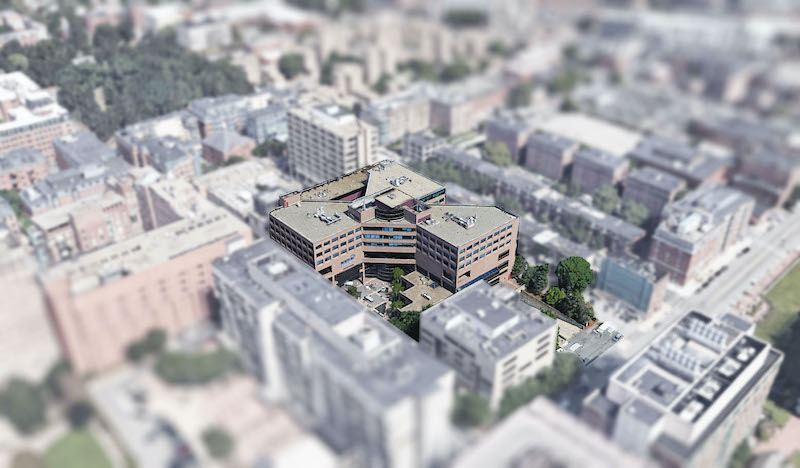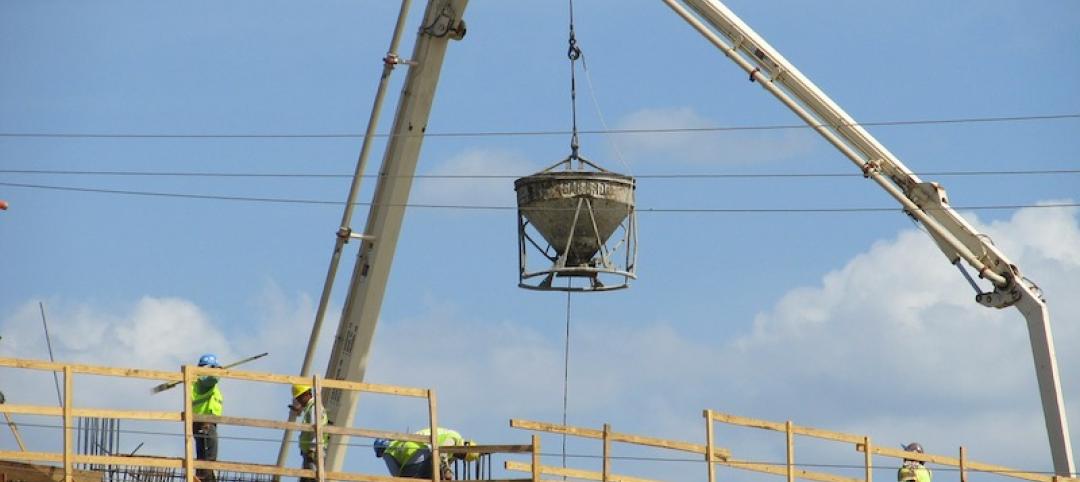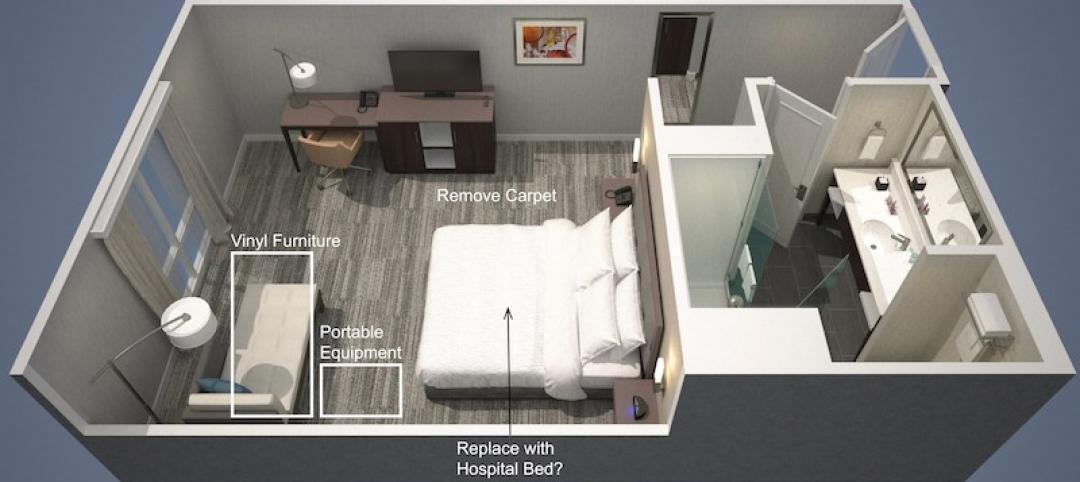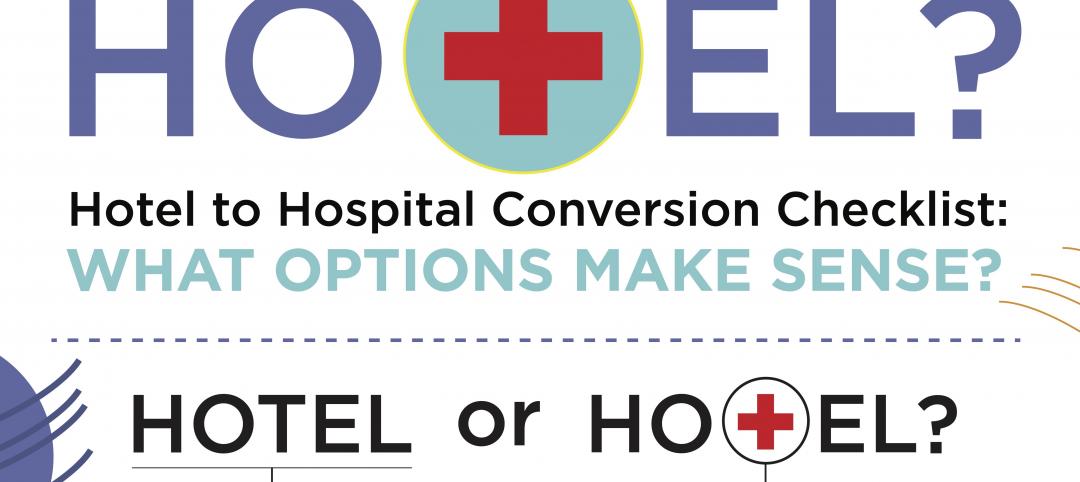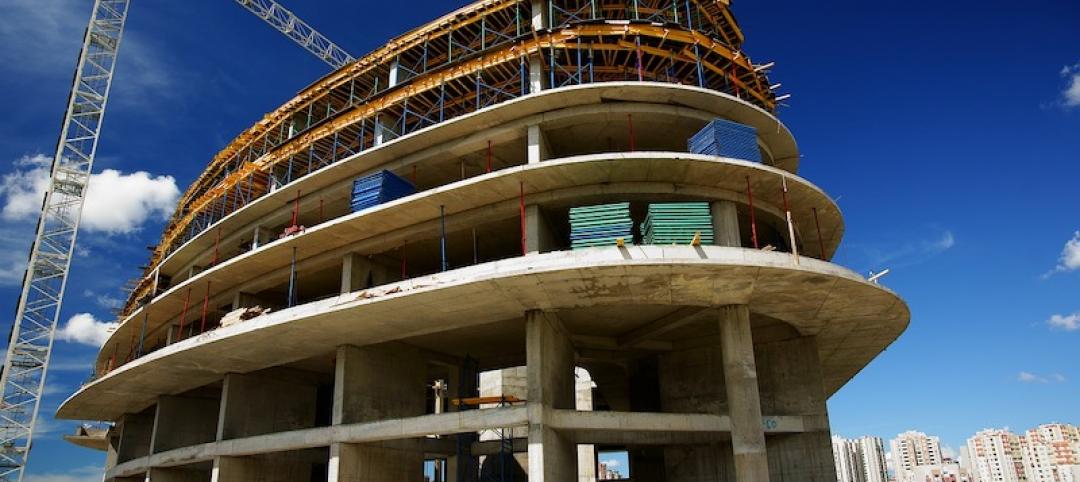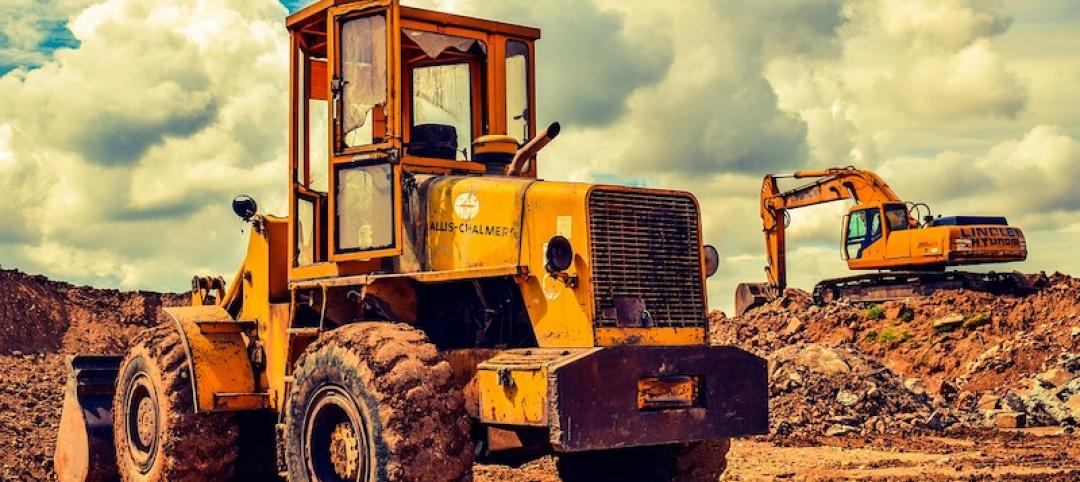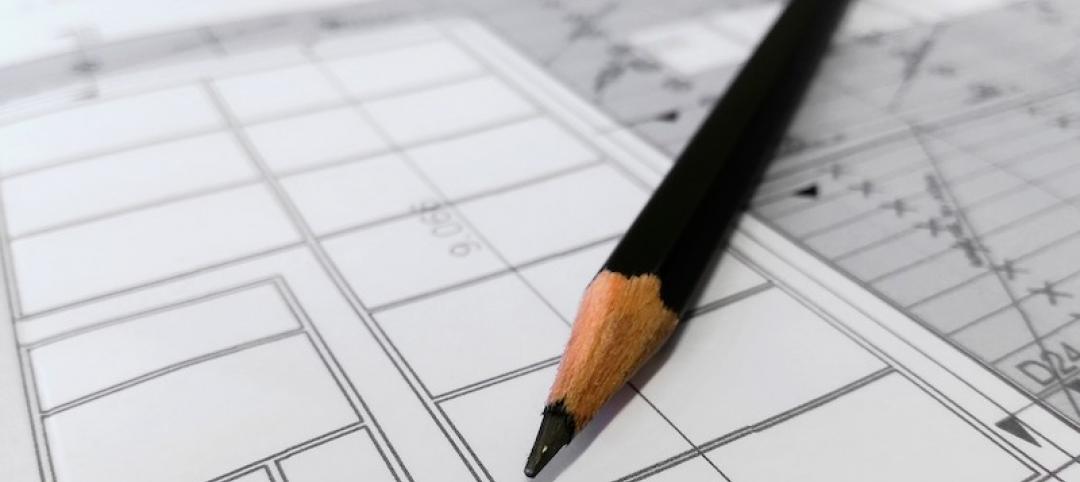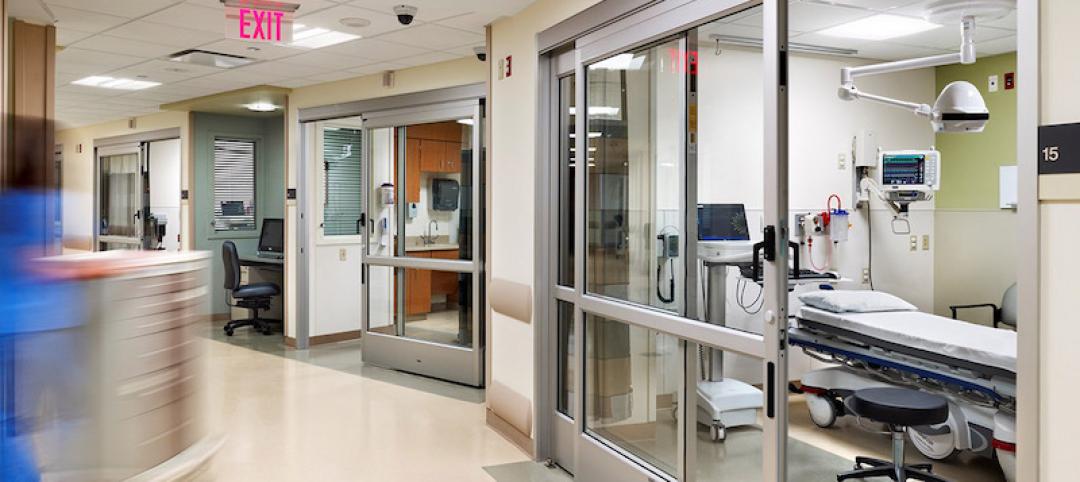The S/L/A/M Collaborative, Boston Studio (SLAM) and Gilbane Building Company (Gilbane), in partnership with the Massachusetts Division of Capital Asset Management & Maintenance (DCAMM), Boston Medical Center (BMC), Boston Healthcare for the Homeless, the Department of Public Health, led the technical planning, design and construction of a temporary quarantine shelter in response to the COVID-19 pandemic. The facility has a maximum capacity of up to 304 non-acute beds for Boston-area homeless at the former Newton Pavilion previously managed by Boston Medical Center at 88 E. Newton Street in Boston, MA.
The Newton Pavilion has been a shuttered hospital facility since October 29, 2018. SLAM and Gilbane were contracted by the current building owner, DCAMM, to assist them in assessing the building and devising an occupancy plan to convert the space for homeless patients who are not in need of acute hospitalization, yet test positive for the coronavirus, but are a-symptomatic or showing mild symptoms with orders to quarantine at home.
The coordination and focused effort to ready the Newton Pavilion for occupancy on April 9, 2020, required full-day meetings over a 28-day period held between DCAMM, BMC, Gilbane, and the SLAM design team, led by Senior Associate Loren Belida, AIA and Gilbane’s Senior Project Executive Jim Dabrowski. Following the Army Corps of Engineers review and swift approval of the occupancy plan demonstrating SLAM’s technical expertise and in-depth work in healthcare programming and planning, Gilbane was able to rapidly mobilize on-site and deliver the facility ahead of schedule.
“DCAMM was ahead of the curve when asked what it would take to temporarily re-open the “mothballed” facility” said Carol Gladstone, DCAMM Commissioner, “The project team quickly developed a very comprehensive and integrated execution plan that involved splitting construction scope between our internal team and Gilbane. I had extremely high confidence that we could rise to the challenge and deliver in a short timeframe.”
BMC will manage operations for the temporary facility and patient care will be administered by their clinical staff. The total re-occupied project area makes up approximately 166,500-square feet, spanning eight floors and the overall project scope includes the reactivation/upgrade to building systems including life safety, HVAC, fire protection, plumbing, fire protection, medical gasses, electrical and architectural upgrades.
“Gilbane is grateful for the opportunity to work on this critical project delivered by this incredibly dedicated team. Our team and subcontractor partners worked three shifts, working literally 24 hours a day to deliver this much-needed facility ahead of schedule. We’re honored to be of service to the Commonwealth and its citizens at this time of great need”, said Mike O’Brien, vice president, Massachusetts business unit leader.
SLAM and Gilbane have partnered on more than 40 projects throughout New England and across the country.
“The project team understood from day one that reinvigorating the space and systems of a “mothballed” hospital would require expertise, proactivity, coordination, and flexibility,” says Gabriel Comstock, AIA, lead healthcare planner and design architect, SLAM Boston Studio. “From the Commonwealth to the subcontractors, I’ve never seen a purer example of unyielding technical collaboration and speed to serve the most vulnerable populations at a more critical time in our community.”
Related Stories
Coronavirus | Apr 1, 2020
February rise in construction outlays contrasts with pandemic-driven collapse in March as owners, government orders shut down projects
Survey finds contractors face shortages of materials and workers, delivery delays and cancellations.
Coronavirus | Apr 1, 2020
Green cleaning and the coronavirus
If your cleaning teams use bleach to disinfect buildings from Coronavirus, will you put your LEED certification at risk?
Coronavirus | Mar 31, 2020
As cities scramble for hospital beds to treat COVID-19 patients, Leo A Daly offers a hotel-to-hospital solution
The firm has devised three conversion models, for different levels of healthcare required.
Coronavirus | Mar 30, 2020
Your turn: Has COVID-19 spelled the death knell for open-plan offices?
COVID-19 has designers worrying if open-plan offices are safe for workers.
Coronavirus | Mar 30, 2020
Learning from covid-19: Campuses are poised to help students be happier
Overcoming isolation isn’t just about the technological face to face, it is about finding meaningful connection and “togetherness”.
Coronavirus | Mar 30, 2020
COVID-19 innovation: Setting parameters for hotel-to-hospital conversions
tvsdesign breaks down different room types and how they might help free up hospital beds for coronavirus patients.
Coronavirus | Mar 30, 2020
New Department of Homeland Security guidance clarifies construction's role in supporting essential critical infrastructure
Construction officials say new federal guidance should signal to state and local officials the need to allow construction activity to continue, or resume, during coronavirus-related work stoppages.
Coronavirus | Mar 27, 2020
Sharp jump in owners cancelling or delaying construction projects across the country, new survey finds
After 42 states added jobs in February, coronavirus is taking a swift and severe toll on the industry, prompting association officials to call for additional measures to help workers and firms recover.
Coronavirus | Mar 27, 2020
Covid-19 stalls demand for design services
Two thirds of architecture firms report slowing or stoppage of projects due to COVID-19.
Coronavirus | Mar 26, 2020
It’s not if, but when: Designing healthcare spaces that support pandemic response
What can we learn from Singapore’s response to COVID-19? How does it impact the next generation of hospitals?


